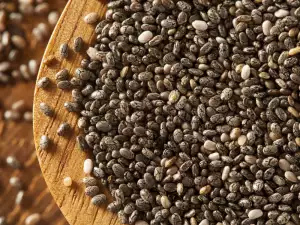The avocado - this favorite fruit of many has dozens of cultivated varieties. The most popular variety is the "Hass" avocado. Unlike the other, green avocados, this type ends up with a dark purple color when fully ripened.
Avocado has an unobtrusive and light tastes, allowing it to combine easily with any food. Avocados and olives contain the same amount of fat as a percentage.
Oil is derived from avocados. The fruit can be eaten fresh, sauteed or steamed.
A great deal is known about the benefits of avocados. But as with all good things, one must not overindulge with it. The most common problems that can arise from eating avocado are allergic reactions.
In most cases, people who have an expressed latex allergic reaction are most affected. The proteins found in avocados can trigger an immune system reaction similar to that triggered by the proteins found in latex.
And vice versa - if your mouth gets irritated when you eat avocados, you are most likely allergic to latex. Besides avocados, a similar reaction can be caused by bananas, potatoes, tomatoes, mangoes, kiwis and chestnuts.

The recommended daily dose of avocado should not be exceeded, mostly because of the high levels of fat in the fruit. Even though they are beneficial, the high quantities of fat can have the opposite effect, especially if consumed for the high content of fiber and laxative effects.
Despite these presumed harms, the avocado is a fruit that should be eaten daily, since the benefits do outweigh the disadvantages. Eating it is a natural way of reducing high cholesterol.
In addition, it is recommended for dieting, since it increases the intake of minerals and vitamins, while at the same time reducing the risk of various diseases.
By eating avocados, high amounts of fibers also enter the body, making you feel full for longer periods of time. The delicious fruit is rich in carotenoids, that protect against many types of eye problems. It regulates blood pressure, improves blood flow to the brain, reduces the risk of breast cancer.




















Comments